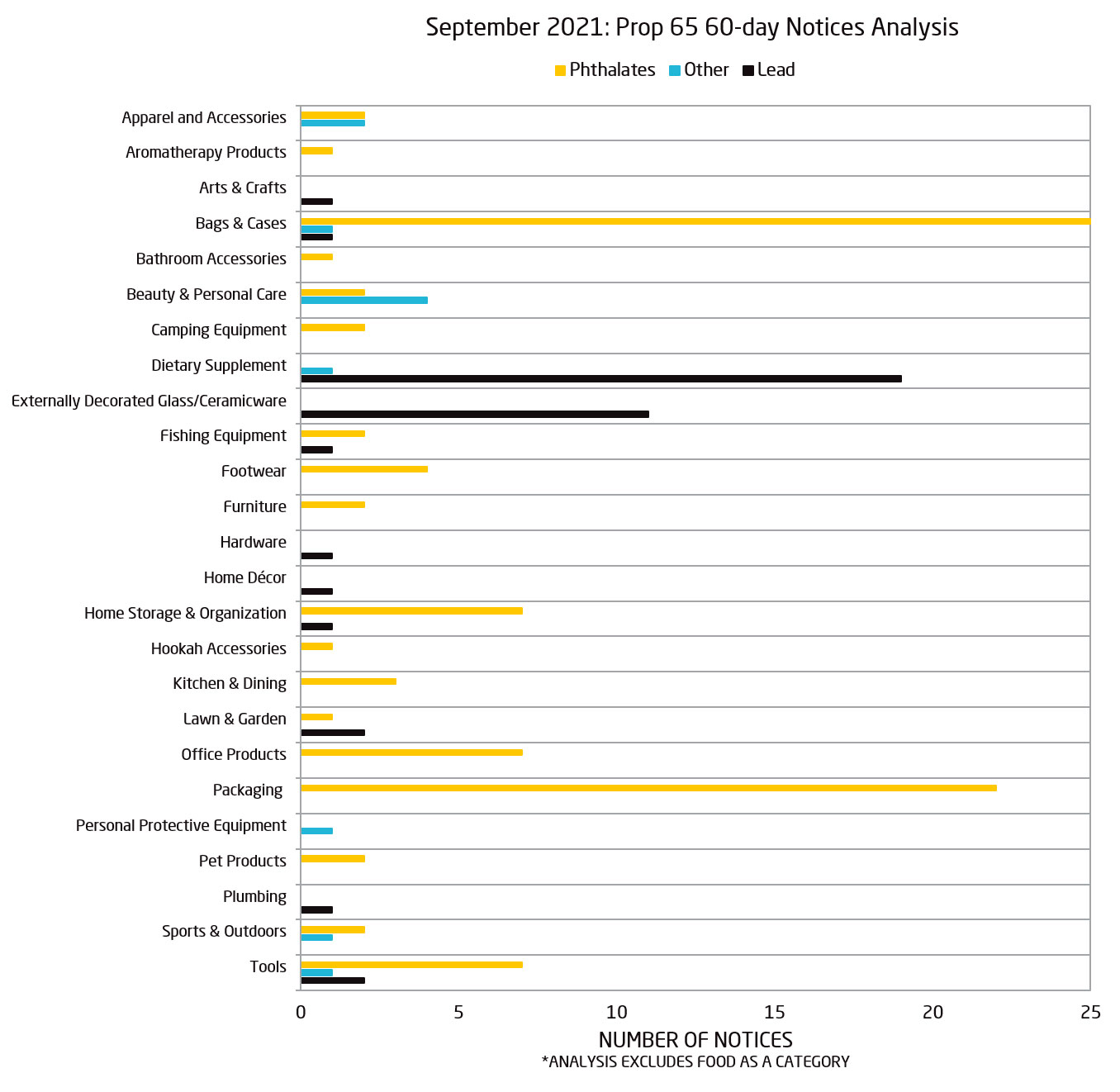U.S. – September 2021 California Proposition 65 – 60-Day Notices Analysis
Vol. 1274 | 17 Oct 2021
The Safe Drinking Water and Toxic Enforcement Act of 1986, commonly referred to as Proposition 65 (Prop 65), is enforced by the California Attorney General’s office or any district attorney or certain city attorneys or by any individual acting in the public interest. Prop 65 requires that an individual acting in the public interest, to enforce the Act give notice of the impending action to the person alleged to be committing the violation, along with the Attorney General, district attorneys and certain city attorneys in which the violation is alleged to have occurred. The notice must be sent to these parties no less than 60 days before commencing the action; thus, this notice is commonly referred to as the “60-day Notice of Violation”.
In September 2021, there were a total of 249 60-day notices for violation of Prop 65, down from the 335 notices served in August 2021. The majority of the notices were for lead, accounting for 46% while phthalates had a total of 93 notices, about 37% of the total number of notices. Of the remaining, 27 notices were for acrylamide in food. 5 notices were for bisphenol A (BPA) in phone cases, bottle cages, face shields and socks made primarily of polyester with spandex.
Food accounted for 104 notices (42%). Bags & cases had 27 notices. Reusable packaging such as clear plastic cases and bags for pillows, personal care, ping pong sets, etc. received another 22 notices for phthalates. Dietary supplements accounted for 20 notices There were 11 notices for lead in externally decorated glass/ceramicware products. Tools accounted for 10 notices for phthalates and diethanolamine.
Noticeably, the Center of Environmental Health (CEH) issued two Prop 65 notices, the first on September 1st for detecting BPA in socks [involving over 40 companies] and the second on September 10th [involving over 10 companies] also for finding BPA in socks. Neither of the notices provides any details related to the test methods followed or the BPA concentration that was detected.
BPA-based chemicals such as polyethylene glycol bisphenol A acrylates are used as a processing aid during fiber spinning to incorporate antistatic and hygroscopic properties. Based on past studies BPA can be present in polyester/spandex yarn. For the short term, brands who are not targeted by these notices can begin to randomly check for total BPA in polyester/spandex-based socks until the settlement is reached establishing BPA requirement.
BPA testing can be performed at major Intertek lab locations including Hong Kong, Shanghai and Guangzhou.
For questions, please contact Stella Xingyu Li (xingyu.li@intertek.com, +1 503 351 9612 ) or Pratik Ichhaporia (pratik.ichhaporia@intertek.com , +1 847 212 8273).
